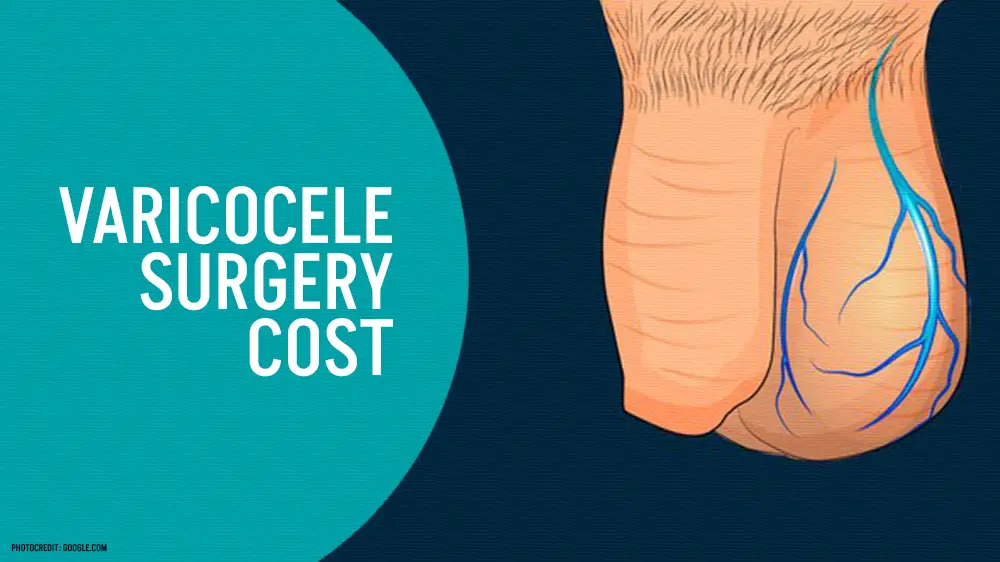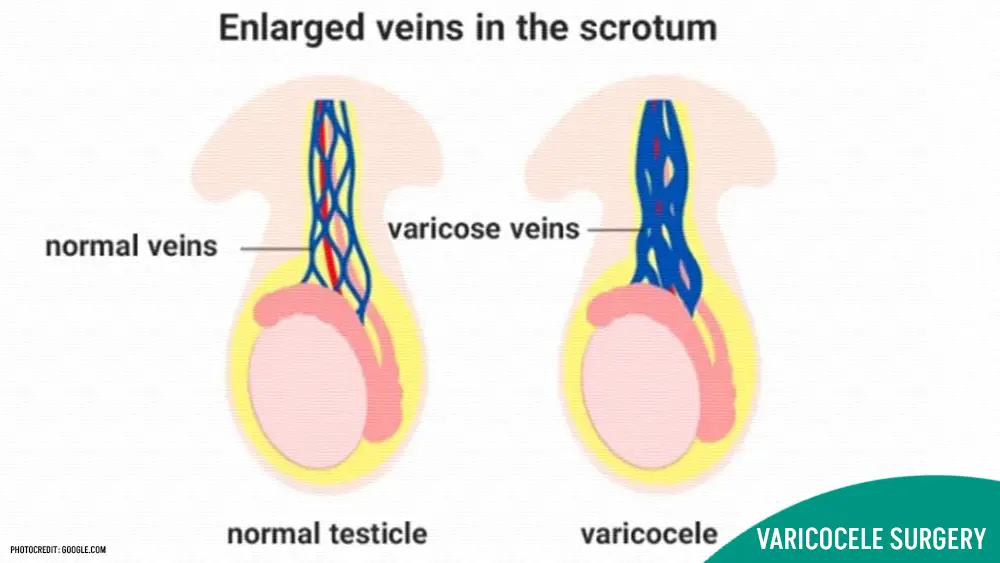
HEALTH BLOG
Managing Varicocele Surgery Cost: Tips and Strategies
-
Rahul Priydarss
Discover valuable tips and strategies for managing varicocele surgery costs efficiently. Our comprehensive guide provides insights into factors influencing expenses, insurance coverage, financing options, and cost-effective treatment approaches. Navigate the financial aspects of varicocele surgery with confidence and ensure quality care at a reasonable price.
Introduction to Varicocele Surgery:
Varicocele, a condition characterized by swollen veins within the scrotum, often requires surgical intervention for treatment. While the decision to undergo surgery is crucial for alleviating symptoms and preventing complications, one significant concern for individuals considering varicocele surgery is the cost associated with the procedure. In this article, we’ll delve into the various aspects of varicocele surgery cost, including factors influencing it, ways to mitigate expenses, and the importance of choosing the right surgeon and hospital.

Table of Contents
What is Varicocele:
Varicocele is a medical condition characterized by the enlargement of veins within the scrotum, the pouch of skin that holds the testicles. These veins are similar to varicose veins that occur in the legs. Varicoceles develop when the valves inside the veins that regulate blood flow fail to function properly, causing blood to pool and the veins to swell.
Varicoceles are relatively common, affecting approximately 10-15% of men. They are most commonly found on the left side of the scrotum, although they can also occur on the right side or bilaterally (on both sides). In many cases, varicoceles do not cause any symptoms and may only be discovered during a routine physical examination or fertility evaluation.
Why Varicocele Surgery is Important:
Varicocele surgery is really important because it helps fix a problem called varicoceles. These are like swollen veins in the scrotum, which is the bag of skin holding the testicles. When these veins swell up, they can cause pain, and discomfort, and even make it harder to have babies. Here’s why surgery is a big deal.
Relieving Pain and Discomfort: Imagine feeling a constant ache or heaviness in your scrotum. That’s what some people with varicoceles go through. Surgery can make this discomfort go away, making life much easier.
Improving Fertility: Varicoceles can mess with sperm production and quality, making it tough to have kids. Surgery helps by fixing the blood flow issue, which can make sperm healthier and increase the chances of having a baby.
Avoiding Problems Later: If left untreated, varicoceles can lead to serious issues like testicular shrinkage or even worse sperm quality. Surgery stops these problems from happening, keeping everything down there in good shape.
Feeling Better Inside and Out: Dealing with varicoceles can be stressful and embarrassing. Surgery not only fixes the physical issues but also helps with the mental and emotional stress that comes with fertility problems.
Staying Healthy Long-Term: Varicoceles can sometimes lead to other health problems, like testicular cancer or ongoing pain. By getting surgery early on, you lower the chances of these issues popping up later in life.
Types of Varicocele Surgery:
When it comes to treating varicoceles, there are a few different types of surgery your doctor might recommend. Each type has its pros and cons, but they all aim to fix the problem and relieve your symptoms. Here’s a rundown of the main types.
Open Surgery: This is the traditional method where the surgeon makes a small incision in your groin to access the swollen veins. They then tie off or remove the affected veins to improve blood flow. While effective, open surgery may require a longer recovery time and leave a small scar.
Laparoscopic Surgery: In this minimally invasive procedure, the surgeon makes several small incisions in your abdomen. They use a tiny camera and specialized instruments to locate and treat the varicoceles without the need for a large incision. Laparoscopic surgery typically results in less pain and scarring, with a quicker recovery compared to open surgery.
Microscopic Surgery: This advanced technique involves using a microscope to magnify the surgical area, allowing for more precise treatment of the affected veins. Microscopic surgery is often preferred for complex cases or when preserving fertility is a priority. While it offers excellent results, it may require specialized training and equipment.
Factors Affecting Varicocele Surgery Cost:
The cost of varicocele surgery can vary widely depending on several factors. Understanding these factors can help you anticipate expenses and make informed decisions about your treatment. Here are some key factors that can influence the cost of varicocele surgery.
Where You Are: Your location plays a big role in determining the cost. If you live in a bustling city or an area with high living expenses, expect the price to be higher. Different regions may also have different healthcare regulations that can influence costs.
Type of Surgery: There’s more than one way to tackle varicoceles, and each method comes with its price tag. Traditional open surgery tends to be less expensive than more advanced techniques like laparoscopic or microscopic surgery. That’s because these methods often require specialized equipment and expertise.
Surgeon’s Skill Level: The experience and expertise of the surgeon performing the procedure can also impact the cost. Surgeons with a stellar track record and lots of experience may charge more for their services. But remember, going for a skilled surgeon is crucial for a successful outcome.
Hospital Costs: Where you have the surgery done matters too. Hospitals may have different fee structures, and the quality of facilities and services provided can affect the overall cost. Some hospitals may also tack on additional charges for things like pre-operative tests or post-operative care.
Extra Expenses: Don’t forget about the little things that can add up. Anesthesia fees, medications, follow-up appointments – they all contribute to the final bill. Be sure to ask about these extra costs so you’re not caught off guard.
Average Varicocele Surgery Cost:
Pinpointing the exact cost of varicocele surgery can be tricky since it varies depending on factors like location, type of surgery, and individual circumstances. However, to give you a rough estimate, varicocele surgery typically ranges from a few thousand dollars to several thousand dollars.
Range of Costs:
The cost of varicocele surgery can vary significantly depending on several factors, including geographical location, type of surgery, and individual patient characteristics. On average, varicocele surgery typically ranges from a few thousand dollars to several thousand dollars. However, it’s essential to note that this is merely an estimate, and actual costs can vary based on specific circumstances.
Factors Influencing Cost:
- Location: The geographical location where the surgery is performed can have a significant impact on the cost. Healthcare expenses may be higher in urban areas or regions with a higher cost of living. Additionally, different countries or regions may have varying healthcare regulations and pricing structures.
- Type of Surgery: The specific type of varicocele surgery chosen will play a major role in determining the cost. Open surgery, laparoscopic surgery, and microscopic surgery each have different associated expenses. More advanced or minimally invasive techniques may be more costly due to the specialized equipment and expertise required.
- Surgeon’s Experience: The experience and skill level of the surgeon performing the procedure can affect the cost of varicocele surgery. Surgeons with extensive experience and a high success rate may charge higher fees for their services. However, choosing a skilled surgeon is important for ensuring the best possible outcome.
- Hospital Fees: The fees charged by the hospital or surgical facility where the procedure is performed will contribute to the overall cost of varicocele surgery. Factors such as the quality of facilities, level of care provided, and any additional services offered can impact hospital fees.
- Additional Expenses: In addition to the primary surgical costs, there may be additional expenses associated with varicocele surgery. These can include anesthesia fees, pre-operative tests or consultations, post-operative medications, and follow-up appointments. It’s essential to consider these potential expenses when estimating the total cost of surgery.

Ways to Reduce Varicocele Surgery Cost:
Managing the cost of varicocele surgery can be challenging, but there are several strategies you can explore to help reduce expenses and make the procedure more affordable. Here are some ways to mitigate the cost of varicocele surgery.
Insurance Coverage: Check if your health insurance plan covers varicocele surgery. Some insurance providers may partially or fully cover the cost of the procedure if it is deemed medically necessary. Review your policy details and consult with your insurance provider to determine coverage eligibility.
Financing Options: Many healthcare facilities offer financing plans or payment arrangements to help patients manage the cost of surgery over time. Explore options for installment plans or healthcare financing programs that allow you to spread out payments and make them more manageable within your budget.
Medical Tourism: Consider exploring the option of undergoing varicocele surgery in countries where healthcare costs are lower. Medical tourism can significantly reduce expenses, but it’s essential to conduct thorough research and consider potential risks before traveling for treatment.
Negotiation With Hospitals or Doctors: Don’t hesitate to negotiate with healthcare providers to obtain discounts or explore alternative treatment options that may be more affordable. Some hospitals or surgical centers may offer reduced rates for cash-paying patients or be willing to negotiate fees for certain services.
Seeking Financial Assistance: Depending on your financial situation, you may qualify for financial assistance programs or grants that can help cover the cost of varicocele surgery. Explore resources available through government agencies, nonprofit organizations, or community foundations that provide financial support for medical expenses.
Comparing Costs: Shop around and compare the costs of varicocele surgery at different healthcare facilities or with different surgeons. Prices can vary significantly, so obtaining multiple quotes and evaluating the value of services offered can help you find the most cost-effective option.
Consider Outpatient Facilities: Opting for outpatient surgery at a standalone surgical center or clinic may be more cost-effective than undergoing the procedure at a hospital. Outpatient facilities often have lower overhead costs, resulting in reduced fees for surgical procedures.
Choosing the Right Surgeon and Hospital to Reduce Varicocele Surgery Cost:
Selecting the right surgeon and hospital for your varicocele surgery is crucial not only for ensuring a successful outcome but also for managing costs effectively. Here’s how you can make informed decisions to reduce the overall expense of varicocele surgery.
Research and Referrals: Start by researching reputable surgeons and hospitals that specialize in varicocele surgery. Seek recommendations from trusted sources such as your primary care physician, friends, or family members who have undergone similar procedures. Reading online reviews and testimonials can also provide valuable insights into the quality of care provided by different healthcare providers.
Credentials and Expertise: Look for surgeons who are board-certified and have extensive experience performing varicocele surgery. Verify their credentials and inquire about their success rates and patient outcomes. Choosing a skilled and experienced surgeon can help minimize the risk of complications and ensure optimal results, potentially reducing the need for additional procedures and associated costs.
Facilities and Amenities: Consider the quality of facilities and amenities offered by the hospital or surgical center where the procedure will be performed. While luxurious amenities may be appealing, prioritize factors such as accreditation, infection control measures, and patient safety protocols. Opting for a well-equipped facility with modern technology and experienced staff can contribute to a smoother surgical experience and potentially lower the risk of complications.
Cost Transparency: Seek clarity regarding the total cost of varicocele surgery, including surgeon’s fees, hospital fees, anesthesia costs, and any additional expenses. Request a detailed breakdown of charges and inquire about payment options, discounts, or financial assistance programs available to help manage costs. Some healthcare providers may offer package deals or bundled pricing for varicocele surgery, which can provide cost savings compared to itemized billing.
Location and Accessibility: Consider the location of the hospital or surgical center about your home or workplace. Choosing a facility that is conveniently located and easily accessible can help reduce transportation costs and minimize the time and inconvenience associated with travel. Additionally, inquire about parking fees or public transportation options available near the facility.
Patient Reviews and Satisfaction: Take the time to read patient reviews and testimonials to gauge the overall satisfaction level with the surgeon and hospital. Positive feedback from previous patients can instill confidence in your decision and help you feel reassured about the quality of care you will receive. Conversely, negative reviews or concerns raised by patients should be taken into consideration when evaluating healthcare providers.
Basic Need for Varicocele Surgery:
Varicocele surgery addresses a common condition called varicoceles, which involves enlarged veins in the scrotum. While not all varicoceles require surgery, there are certain situations where it becomes necessary. The basic need for varicocele surgery arises when individuals experience symptoms such as.
Pain or Discomfort: Persistent pain or discomfort in the scrotum, especially during physical activity or prolonged standing, may indicate the need for surgery to alleviate symptoms.
Infertility Concerns: Varicoceles can negatively impact sperm production and quality, leading to infertility in some cases. Surgery may be recommended for individuals experiencing fertility issues associated with varicoceles.
Testicular Atrophy: Severe varicoceles can cause the testicles to shrink or atrophy over time. Surgery may be necessary to prevent further deterioration of testicular function and maintain reproductive health.
Visible Swelling or Lumps: Varicoceles may be visible or palpable as lumps or swelling within the scrotum. Surgery may be considered to address cosmetic concerns or discomfort associated with the visible enlargement of veins.
Prevention of Complications: Untreated varicoceles can lead to complications such as testicular shrinkage, impaired sperm quality, or chronic pain. Surgery aims to prevent these complications and preserve testicular function.
Recovery Process After Varicocele Surgery:
Recovery from varicocele surgery typically involves several stages, and the timeline can vary depending on the type of surgery performed and individual factors. Here’s what you can expect during the recovery process:
Immediate Postoperative Period (First Few Days):
- Pain Management: You may experience some discomfort or pain in the scrotum immediately after surgery. Your doctor will prescribe pain medications to help manage any discomfort during this time.
- Rest and Limited Activity: It’s essential to rest and avoid strenuous activities in the days following surgery. Your doctor may recommend limiting physical exertion and avoiding heavy lifting to promote healing.
- Compression and Support: Wearing supportive underwear or a scrotal support garment can help reduce swelling and provide comfort during the initial recovery period.
First Week:
- Follow-up Appointment: You’ll likely have a follow-up appointment with your surgeon within the first week after surgery to monitor your progress and ensure proper healing.
- Resuming Normal Activities: While you may still experience some discomfort, you can gradually begin to resume light activities such as walking. However, it’s important to avoid activities that could strain the surgical site.
- Incision Care: Follow your doctor’s instructions for caring for the incision site, which may involve keeping it clean and dry and avoiding soaking in water until it has fully healed.
Weeks 2-4:
- Gradual Return to Normal Routine: As you continue to recover, you can gradually increase your activity level and resume normal daily activities. However, avoid heavy lifting or strenuous exercise until cleared by your doctor.
- Monitoring Symptoms: Pay attention to any changes in symptoms or signs of complications, such as excessive swelling, redness, or fever. Contact your doctor if you experience any concerning symptoms during this time.
Long-Term Recovery:
- Full Recovery: While most individuals can resume normal activities within a few weeks after varicocele surgery, full recovery may take several weeks to months. It’s essential to be patient and give your body time to heal completely.
- Follow-up Care: Your doctor may schedule additional follow-up appointments to monitor your progress and assess the success of the surgery. Follow any postoperative care instructions provided by your healthcare team to ensure optimal recovery.
- Fertility Assessment: If fertility issues were a concern before surgery, your doctor may recommend follow-up testing to assess sperm quality and reproductive function after the procedure.
Risks and Complications After Varicocele Surgery:
While varicocele surgery is generally considered safe and effective, like any surgical procedure, it carries certain risks and potential complications. It’s essential to be aware of these risks and discuss them with your healthcare provider before undergoing surgery. Here are some of the potential risks and complications associated with varicocele surgery.
Infection: There is a risk of developing an infection at the surgical site or in the surrounding tissues. Proper wound care and antibiotic therapy may be necessary to prevent or treat infections.
Bleeding: Bleeding can occur during or after surgery, leading to hematoma formation or excessive blood loss. Your surgeon will take precautions to minimize the risk of bleeding and monitor for signs of hemorrhage postoperatively.
Scrotal Swelling and Bruising: Swelling and bruising of the scrotum are common after varicocele surgery and usually resolve within a few weeks. However, excessive swelling or bruising may indicate complications such as hematoma or fluid accumulation.
Pain and Discomfort: Some degree of pain and discomfort is expected following surgery, which can be managed with pain medications. However, persistent or severe pain may indicate complications such as nerve injury or inadequate pain management.
Recurrence of Varicocele: In some cases, varicoceles may recur after surgery, particularly if the underlying cause of venous insufficiency is not adequately addressed. Repeat surgery or alternative treatments may be necessary to address recurrent varicoceles.
Hydrocele Formation: Hydrocele, or fluid accumulation in the scrotum, may occur as a complication of varicocele surgery. This can cause swelling and discomfort and may require additional treatment, such as drainage or surgical repair.
Spermatic Cord Injury: Damage to the spermatic cord or surrounding structures during surgery can result in complications such as testicular ischemia or impaired reproductive function. Careful surgical technique and meticulous dissection are essential to minimize this risk.
Anesthesia Risks: General anesthesia, which is commonly used during varicocele surgery, carries its own set of risks, including allergic reactions, respiratory complications, and adverse effects on cardiovascular function.
Rare Complications: Rare but serious complications of varicocele surgery may include testicular atrophy, chronic scrotal pain, infertility, or injury to adjacent structures such as the vas deferens or testicular artery.
Success Rate of Varicocele Surgery:
Varicocele surgery, when performed by an experienced surgeon using appropriate techniques, has a high success rate in alleviating symptoms and improving fertility outcomes. The success of varicocele surgery is typically measured by factors such as symptom relief, improvement in semen parameters, and pregnancy rates. Here are some key points regarding the success rate of varicocele surgery.
Symptom Relief: Varicocele surgery is often successful in relieving symptoms such as scrotal pain, discomfort, and swelling. Many patients experience a significant reduction in symptoms or complete resolution following surgery.
Improvement in Semen Parameters: Varicoceles are a known cause of male infertility, and surgery aims to improve sperm quality and motility. Studies have shown that varicocele repair can lead to improvements in semen parameters, including sperm concentration, motility, and morphology.
Pregnancy Rates: One of the primary goals of varicocele surgery in couples experiencing infertility is to increase the chances of natural conception or success with assisted reproductive techniques such as in vitro fertilization (IVF) or intrauterine insemination (IUI). Research indicates that varicocele repair can enhance fertility and increase the likelihood of pregnancy in couples struggling with infertility due to varicoceles.
Long-Term Success: While varicocele surgery can provide immediate benefits, its long-term success depends on various factors, including the severity of the varicocele, the age and fertility status of the individual, and the presence of other contributing factors to infertility. However, studies have demonstrated sustained improvements in semen parameters and fertility outcomes several years after varicocele repair.
Factors Affecting Success: The success rate of varicocele surgery may vary depending on factors such as the surgical technique used, the experience and skill of the surgeon, the presence of other fertility issues, and the individual’s overall health and lifestyle factors. Additionally, the timing of surgery and the presence of any complications or recurrence can influence the ultimate success of treatment.
FAQs about Varicocele Surgery Cost:
A1: The cost of varicocele surgery can vary depending on factors such as the type of surgery, location, and healthcare provider. On average, varicocele surgery may range from a few thousand dollars to several thousand dollars.
A2: Many health insurance plans cover varicocele surgery if it is deemed medically necessary. However, coverage may vary depending on your insurance provider and policy. It’s essential to check with your insurance company to determine coverage eligibility and any out-of-pocket expenses.
A3: The recovery time after varicocele surgery varies depending on factors such as the type of surgery performed and individual healing capacity. Generally, patients can expect to resume normal activities within a few days to a few weeks after surgery, with full recovery taking several weeks to months.
A4: Yes, varicocele surgery can often be performed as an outpatient procedure, meaning patients can go home the same day as the surgery. However, the specific approach may vary depending on factors such as the surgical technique used and the individual’s health status.
A5: While surgery is the most common treatment for varicoceles, non-surgical options may be considered in certain cases. These may include techniques such as embolization, which involves blocking off the affected veins using a catheter and coils or sclerosing agents injected into the veins to shrink them. However, the effectiveness of non-surgical options may vary, and surgery may still be recommended in some situations.

-Please remember, to always consult with healthcare professionals or Doctors for personalized advice related to medical conditions.
Conclusion:
Varicocele surgery is a viable treatment option for individuals experiencing symptoms related to varicoceles, such as scrotal pain or infertility. While the cost of surgery may pose a concern for some patients, various strategies can help mitigate expenses and make treatment more affordable. By carefully selecting a qualified surgeon and hospital, understanding the factors influencing cost, and exploring financing options or insurance coverage, individuals can undergo varicocele surgery cost with confidence, knowing they are receiving quality care at a reasonable price.




